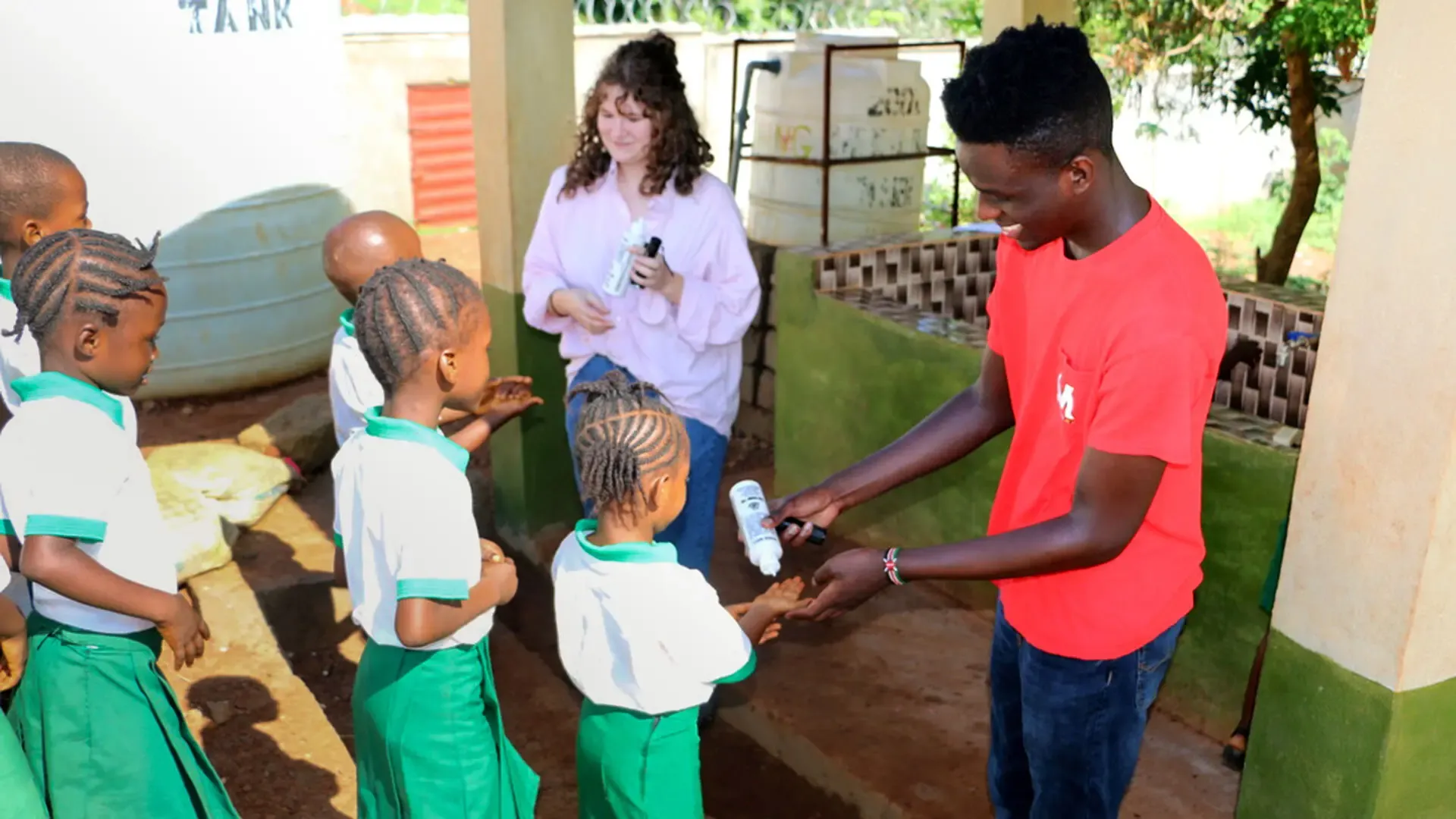
Photo by Dina Borzekowski/Public Health Beyond Borders Sierra Leone
The University of Maryland School of Public Health announced Tuesday it will launch an undergraduate major in global health along with the Department of Global, Environmental, and Occupational Health (GEOH) in Fall 2024. The department will replace and expand upon the Maryland Institute for Applied Environmental Health (MIAEH).
The first such undergraduate program in the state of Maryland, the global health major will enable students to gain a deeper perspective on the complexities of global public health challenges and solutions through core courses focusing on topics such as the environmental determinants of emerging infectious diseases and the role of medical anthropology in global health.
"UMD students have been asking for a bachelor’s degree in global health for quite a while," said Catherine Donohoe, assistant director for the new program. "This is going to be a great fit for students interested in learning about public health and human rights in cross-cultural contexts, especially if they are still exploring career paths."
Students will have opportunities to learn through experiences around the world, whether studying food, energy and water security solutions with peers in Nepal through virtual global classrooms or traveling to Brazil to better understand racism as a public health crisis. The new major also requires study of a world language, helping ensure graduates of the program are competitive in their field.
The interdisciplinary major will be offered in collaboration with academic partners including the College of Agriculture and Natural Resources, the College of Arts and Humanities, the College of Behavioral and Social Sciences, the College of Computer, Mathematical, and Natural Sciences, and the College of Information Studies, along with the Office of International Affairs.
The new department’s creation enables the School of Public Health to enhance its academic offerings and research opportunities to support global, environmental and occupational health in Maryland and beyond, said Dean Boris Lushniak.
“Climate change, global health inequities and pandemic preparedness and response represent some of our planet’s greatest challenges,” Lushniak said. “The Department of Global, Environmental, and Occupational Health will address these and other public health issues head-on, accelerating sustainable solutions and reflecting our university's dedication to fearlessly tackling global challenges.”
As demand for research, scholarship and highly trained graduates in global health, environmental health and occupational health has risen, MIAEH excelled in research, practice and academic excellence, faculty members said. But the group has sought a greater platform, in the form of a department, to improve faculty and student recruitment and provide broader opportunities across growing fields.
“We are thrilled with the transition of MIAEH to departmental status,” said MPower Professor of Environmental Health Sciences Amy Sapkota, the inaugural chair of GEOH. “Our students need access to broader opportunities to formally train in critically important public health fields, including global health and environmental justice, which has become increasingly apparent during the pandemic. As GEOH, we will more readily expand our academic and research programs and attract high-caliber faculty and students.”
As an institute, MIAEH launched multiple externally funded centers and programs, including the Public Health Aerobiology Lab; the CONSERVE Center of Excellence; the Community Engagement, Environmental Justice, and Health program; the Water Quality, Outreach and Wellness Lab; and the Global FEWture Alliance, funded by a Grand Challenges Institutional Grant. GEOH will continue to build upon the Institute’s successful track record in research, while expanding academic programs, Sapkota said.
In addition to the global health major, GEOH will partner with UMD’s Environmental Science & Policy (ENSP) program to launch an undergraduate specialization in environmental justice. It will provide students with tools to work at the intersection of social justice, policy, environmental science, environmental health and public health.
“With a public health and environmental science and policy lens, this program is unique among academic institutions and will serve as a highly desirable credential for our students, who will be prepared to be future changemakers in the field of environmental justice,” said ENSP Program Director Mark Carroll. ENSP is co-sponsored by AGNR, CMNS and BSOS.
With the i’s dotted and the globe ready to cross, the new department has already begun readying for its greater footprint, Lushniak said.
“From College Park to around the world, we’re advancing public health research, training, leadership and practice, arming the next generation of leaders in the field with tools to improve health for everyone, everywhere,” he said. “By launching GEOH, the UMD School of Public Health will better support our current faculty, expand our pool of top-notch new faculty and offer students new research and training opportunities to help local and global communities and ultimately improve lives.”